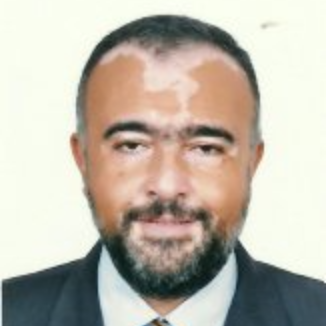
Hossam Eldin Mostafa Attia
Work place: Electrical Department, Faculty of Industrial Education, Suez University, Suez, Egypt
E-mail: hossam.mostafa@ieee.org
Website: https://scholar.google.com.eg/citations?user=REwOzu4AAAAJ&hl=en
Research Interests: Artificial Intelligence, Automation and Control, Power System
Biography
Hossam E.Mostafa (M'09): was born in Cairo, Egypt in 1965. He received his B. Sc, M. Sc & Ph. D. From Ain Shams University, Cairo, Egypt in 1987, 1994 and 1999 respectively. From 1991 to 2001, he was working in Egypt Air Company as second engineer. Since 2001, he has been a faculty member with the Electrical Department at the Faculty of Industrial Education, Suez Univ. Suez, Egypt. He is currently an Associate Professor and head of Electrical dept. He has been a visiting professor in many universities in Kuwait, Saudi Arabia, and Egypt. His research interests are applying AI techniques in power system wide area control, protection, smart grids & power quality. His email is: hossam.mostafa@ieee.org.
Author Articles
PSO-Based PI Controller for Shunt APF in Distribution Network of Multi Harmonic Sources
By Wael M. Elmamlouk Hossam E. Mostafa Metwally A. El-Sharkawy
DOI: https://doi.org/10.5815/ijisa.2013.08.07, Pub. Date: 8 Jul. 2013
PI controller tuning with the assumption of linear PWM model leads to unsatisfactory results under varying operating conditions. Optimal tuning of PI gains is required to get the best response of PI controllers. This paper presents a new method for harmonic suppression using particle swarm optimization (PSO) based PI controller (PSOPI) to estimate an efficient shunt active power filter (SAPF). The proposed filter is tested on a 13 bus industrial distribution system. The study system with the 18 study cases are simulated through MATLAB Simulink with different loading condition and single and multi harmonic sources. The results of applying the PIPSO controller are compared with those out of a double proportional controller (DPC). The obtained results ensure the effectiveness of the proposed filter and its superiority in reducing harmonics.
[...] Read more.Other Articles
Subscribe to receive issue release notifications and newsletters from MECS Press journals